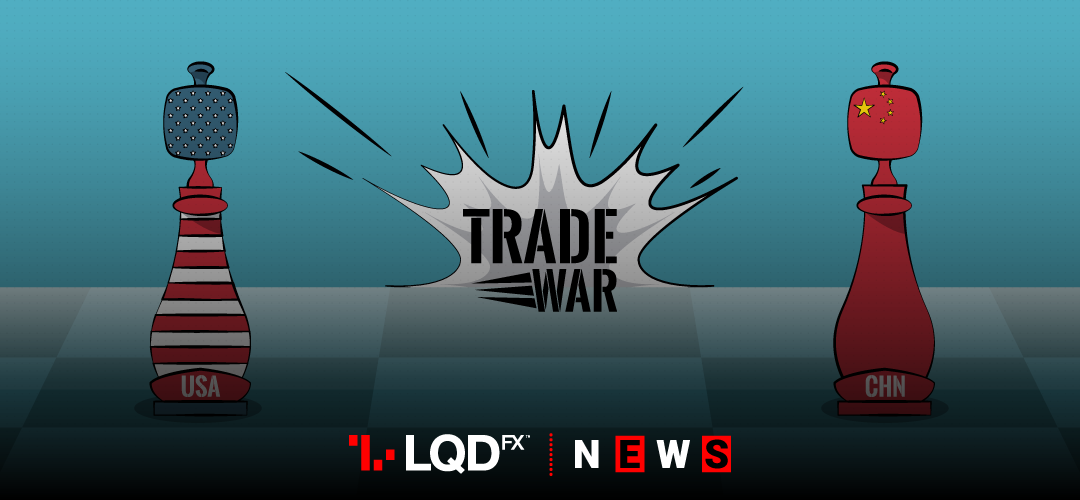Bruising trade war between the world’s largest economies and jolting financial markets has been intensified.
U.S. President Donald Trump vowed to impose a 10% tariff on $300 billion of Chinese imports from Sept. 1. The announcement on Thursday extends Trump’s trade tariffs to nearly all of the Chinese goods the United States imports. It also marks an abrupt end to a temporary truce in a trade row bruising world growth.
Trump also threatened to raise tariffs further if China’s President Xi Jinping fails to move more quickly to strike a trade deal. The US President made the announcement in a series of Twitter posts after his top trade negotiators briefed him on a lack of progress in U.S.-China talks in Shanghai this week. Trump later said if trade negotiations fail to progress, he could raise tariffs further. This means even beyond the 25% levy he has already imposed on $250 billion of imports from China. Over the past year, Washington has imposed 25% tariffs on $250 billion worth of Chinese products. Thus, virtually every Chinese import would have a tariff levied on it come Sept. 1.
The news hit U.S. financial markets hard. The new tariffs would weigh on the global economy when growth is already slowing in the United States, China and the euro zone.
China said it would not be blackmailed and warned of retaliation. Beijing would not give an inch under pressure from Washington, Chinese Foreign Ministry spokeswoman said. Possible retaliatory measures by China could include tariffs, a ban on the export of rare earths and penalties against U.S. companies in China.
Non-farm payrolls are due in the United States later in the day. Experts expect a decrease in the number of jobs added to the economy, to 164,000 in July from 224,000 in June.
START TRADINGForex – Bruising trade war sharply by surprise threats
Trump’s surprise announcement sent shockwaves through global financial markets.
The dollar did not benefit from the scramble for safety. Its index was last down 0.1% at 98.242, falling away from 26-month highs hit on Thursday before news of the tariff threat.
The safe-haven yen jumped as investors rushed for cover on the announcement of the new tariffs and the protraction of the trade war. The Japanese currency surged to a five-week high versus the dollar and a 2-1/2-year peak against the pound on Friday. Against the dollar, the yen jumped to 106.84, its strongest since June 25, before paring gains to trade at 107.06.
The Swiss franc, another currency widely viewed as a safe-haven, reached a two-year high of 1.0940 against the euro.
The euro was slightly lower at $1.1097, not far from the 26-month low hit the previous day.
Sterling was hovering around the 30-month low it reached on Thursday. The British currency last traded unchanged at $1.2126 and at 91.50 pence against the euro.
In commodities, oil prices rose more than 2% on Friday, regaining some ground after their biggest falls in years. Brent rose $1.56, or 2.6%, to $62.06 a barrel by 1210 GMT on Friday, after slumping more than 7% on Thursday, their steepest drop in more than three years. U.S. crude gained $1.29, or 2.4%, to $55.24 on Friday, after tumbling nearly 8% the previous day when they posted their biggest drop in more than four years.
PLEASE NOTE The information above is not investment advice.
Sources: Reuters, Investing, CNN money
